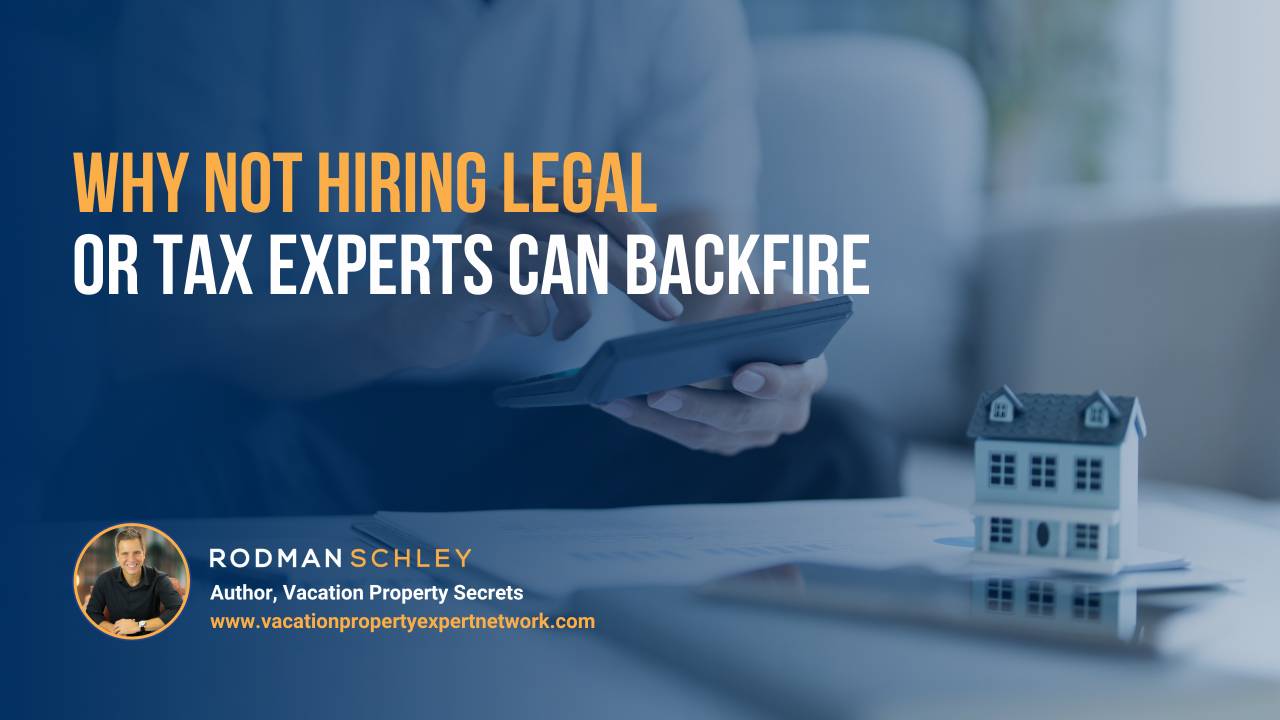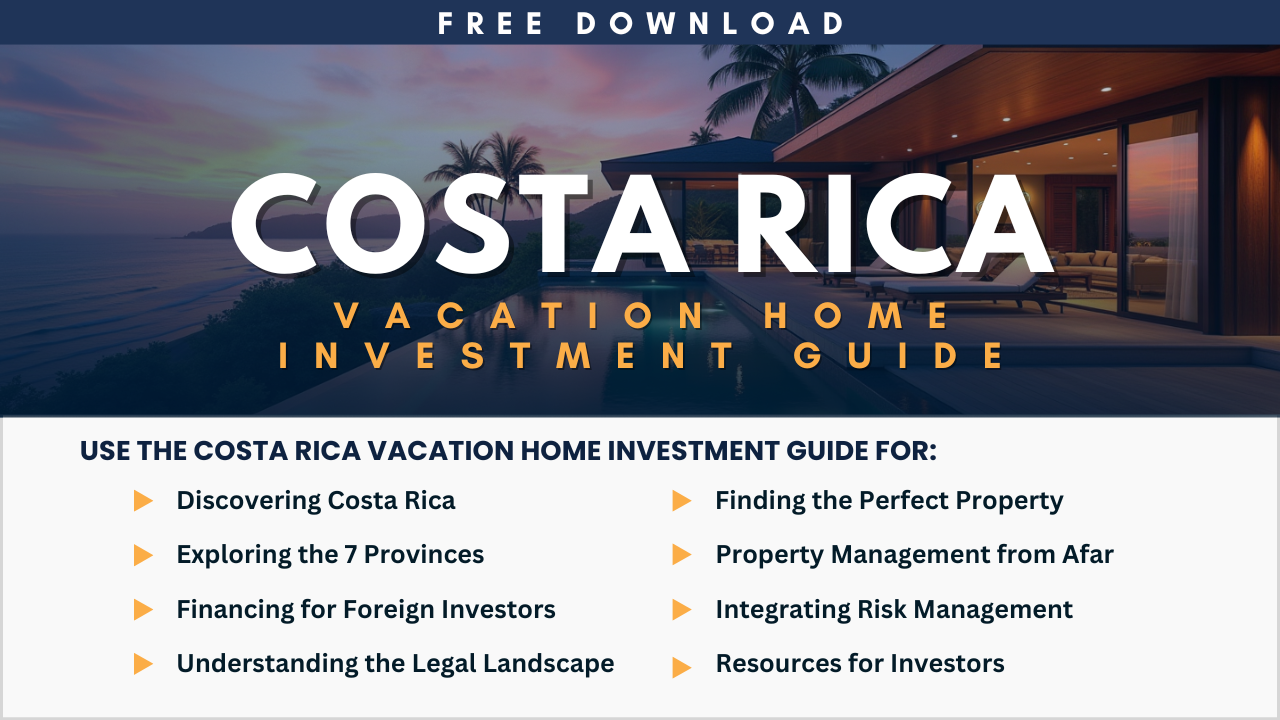
Why Not Hiring Legal or Tax Experts Can Backfire
Buying a property or running a rental business looks simple on the surface. You find the right place, sign the papers, set up a rental listing, and watch the income flow in—or so it seems.
But real success, especially in foreign markets or highly regulated areas, depends on getting the legal and tax details right.
Many investors skip hiring a legal or tax expert to save money upfront, thinking they can "figure it out" on their own. In reality, this shortcut often leads to big mistakes, unexpected fees, and even legal battles that cost far more in the long run.
In this post, we’ll cover why hiring experts matters, the real risks of going it alone, and how smart investors protect their properties—and their peace of mind.
Why Skipping Legal or Tax Help Looks Cheaper (But Isn't)
At first glance, avoiding legal or tax fees feels like smart budgeting. Basic property purchases might seem simple enough, and online resources give the illusion that all the answers are easy to find.
But behind every real estate deal are layers of fine print—permits, zoning laws, title checks, tax structures, local regulations, and changing rules.
Even small mistakes can cost thousands later. A one-time expert fee is minor compared to the risks of missed filings, improper ownership structures, or penalties from unexpected audits.
In fact, a 2023 study by the National Association of Realtors found that over 22% of foreign real estate investors faced costly legal or tax problems because they didn’t consult a professional at the start.
Title Problems Can Destroy a Deal
A common mistake among investors is assuming that title paperwork is always clean. But in many countries, especially popular vacation markets, property titles can be messy, incomplete, or even disputed.
Here's what can happen without legal help:
- Unclear title ownership: Without a thorough title search, you might buy a property that has unpaid debts, shared ownership rights, or other hidden claims.
- Old mortgages, unpaid property taxes, or legal judgments can still be attached to the title—and you become responsible once you buy.
- In some cases, the real owner may not be the person selling the property, leading to lengthy court battles or even losing your investment.
- Boundary disputes: Survey errors or old records can cause neighbors to challenge your property lines, leading to costly legal fights.
- Legal fees for boundary disputes can easily reach $5,000–$20,000, depending on how far the case goes.
- You could be forced to tear down parts of your home, walls, or driveways if they’re found to cross into someone else’s land.
- Inheritance and zoning issues: Properties passed down through families may not have updated title records, or zoning laws may restrict how you can use the land.
- A missing inheritance document can stop you from transferring the title into your name legally, even if you paid for the property.
- Zoning errors can block you from building pools, guest houses, or even renting the property short-term, cutting deep into your expected profits.
If you skip hiring a local attorney to verify ownership, you risk buying a property that you can’t fully use, sell, or legally rent out later.
Fixing title problems after purchase is expensive and can take years—or you could lose the property entirely.
Tax Mistakes Can Pile Up Fast
Taxes for real estate investors aren’t just annual property taxes. They can include:
- Capital gains taxes when selling
- Rental income taxes
- Luxury property taxes
- Transfer taxes at the time of purchase
Without a tax expert’s advice, many investors miss critical rules that lead to unexpected bills later.
Here’s where the trouble starts:
- Misreporting income:
Rental income needs to be declared correctly, even if you live abroad. Failing to report it accurately can trigger audits or penalties. Penalties for incorrect filings can reach 20–25% of the undeclared amount. - Missing deductions:
Without expert advice, you might miss legal deductions like property improvements, management fees, or travel expenses—losing out on savings that could improve your returns by 15–30%. - Wrong ownership setup:
Owning property through the wrong type of company or trust can double your tax rate. In some countries, setting up the right corporation can reduce taxes by 10–20% per year.
Fixing tax mistakes after the fact often involves lawyers, accountants, penalties, and lost income—far more expensive than hiring help at the start.
Local Laws Are Always Changing
Even if you manage to understand the laws today, they might change next year. Many cities and countries update short-term rental rules, tax rates, visa requirements, and foreign ownership policies every year.
To illustrate:
- In 2024, Portugal ended its popular Golden Visa program for real estate investors, cutting off one major path for foreign buyers.
1: Without this program, foreign investors now face stricter residency requirements and fewer tax benefits, making Portugal less attractive for property purchases.
2: Real estate inquiries from foreign buyers dropped by over 40% in major Portuguese cities like Lisbon and Porto within six months of the change. - Spain introduced a new tax on second homes in tourist-heavy cities, increasing holding costs by up to 30% for some owners.
1: In cities like Barcelona and Madrid, owners now face higher annual property taxes and additional tourist rental permit fees.
2: Many investors have seen net rental profits shrink by 15–25% due to these new financial pressures, making short-term rental investment less appealing. - Several U.S. cities banned short-term rentals in certain residential areas, forcing owners to switch to long-term leases or sell their properties.
1: In places like New York City and San Francisco, strict rental caps have cut short-term rental inventory by up to 70%.
2: Property values in banned areas have dropped by 5–10% as fewer investors are willing to buy homes they can no longer rent out short-term.
If you’re not working with someone who stays on top of local laws, you could find yourself violating new rules without even knowing it.
Staying compliant means having an expert in your corner who knows how to pivot when regulations shift—and how to help you adapt your business without losing momentum.
What Smart Investors Do Differently
The investors who thrive long-term don’t try to learn everything the hard way. Instead, they invest in the right help upfront. Here’s how they protect themselves:
- Hire a qualified local attorney:
They ensure that titles are clean, contracts are fair, and all the paperwork protects your interests. - Work with a tax advisor who understands cross-border investments:
An expert can help you legally minimize taxes, avoid double taxation, and set up ownership structures that make financial sense. - Build a team, not just a transaction:
Smart investors build relationships with trusted lawyers, accountants, property managers, and advisors who guide them through changes over the years. - Budget for legal and tax advice from the beginning:
Instead of treating it as an optional cost, they include professional fees as part of their project investment.
Paying for professional advice may feel like an extra step, but it saves far more money, time, and headaches later.
Conclusion
Skipping legal and tax experts might seem like a good way to save money when you’re starting out.
But in real estate, the biggest risks often come from what you don’t know—and guessing your way through ownership almost always costs more in the end.
By investing in good legal and tax support from the beginning, you protect your investment, secure your income, and position yourself for long-term success.
It’s not just about avoiding mistakes. It’s about building a business that’s strong, secure, and ready to grow.
Legal clarity and smart tax planning are not extras—they’re part of the foundation that separates successful investors from those who struggle.
Getting expert help early isn’t just a smart move—it’s the difference between building steady wealth and fighting costly setbacks you could have avoided.
If you want to connect with trusted experts who specialize in helping vacation property owners succeed, check out: 👉vacationpropertyexpertnetwork.com. From legal basics to tax strategy, we’re here to help you move forward with confidence.







